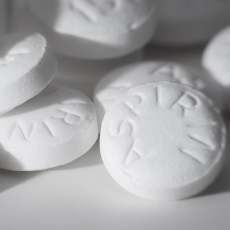
What are blood thinners?
Blood thinners are medicines that prevent blood clots from forming. They do not break up clots that you already have. But they can stop those clots from getting bigger. It's important to treat blood clots, because clots in your blood vessels and heart can cause heart attacks, strokes, and blockages.
Who needs blood thinners?
You may need a blood thinner if you have:
- Blood Thinners (National Library of Medicine)... thinners? There are different types of blood thinners: Anticoagulants, such as heparin or warfarin (also called Coumadin), ...
- Anticoagulants and Drug-Food Interactions (National Jewish Health)... important medicine and diet considerations when taking an anticoagulant medicine.
- Anticoagulants (Texas Heart Institute)Although anticoagulants are called blood thinners, these medicines do not really thin your blood. Instead, they decrease the blood's ...
- Anticoagulant rodenticides are poisons used to kill rats. Rodenticide means rodent killer. An anticoagulant is a blood thinner. Anticoagulant rodenticide poisoning occurs ...
- ... Elsevier; 2024:chap 70. Jaffer IH, Weitz JI. Anticoagulant therapy. In: Sidawy AN, Perler BA, eds. Rutherford's ...
- Ischemic Stroke/Prevention and Risk Factors ... Ischemic Stroke ... Blood Thinners/Start Here ... Blood Thinners ... American Heart Association ... Easy-to-Read ... PDF
- Blood Thinners/Clinical Trials ... Blood Thinners ... National Institutes of Health ... From the National Institutes of Health
- ... older who have been treated with an injectable anticoagulant ('blood thinner'). It is also used to reduce ... valve disease. Dabigatran is in a class of anticoagulant medications called direct thrombin inhibitors. It works by ...
- Prothrombin time (PT) is a blood test that measures the time it takes for the liquid portion (plasma) of your blood to clot. It measures ...
- Your health care provider prescribed a blood thinning medicine called heparin. It has to be given as a shot at home. A nurse or other ...



